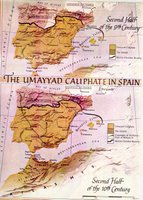
Middle East News Analysis


Iran is now following a two-pronged diplomacy. While escalating its rhetoric toward the West, Iran has been quietly reassuring nervous Gulf rulers about its nuclear program. Ali Akbar Rafsanjani, former president and still a high regime official visited Kuwait to deliver such a message. He was given much publicity in the local media, publicity of the type that in the past was reserved for Iraqi leaders.
Persian Gulf stock markets have been hurt by the jitters from a potential confrontation between Iran and the United States. Many local newspapers publicized reports that Iran has prepared a list of potential targets to hit in case of a conflict- a sort of replay of its actions of the 1980s when the region tilted toward Iraq, but on a much larger scale. The major markets in Kuwait, Saudi Arabia, and the UAE declined sharply over several days. But never fear- the rulers, under pressure from tribal elders, seem set to do something about that. It looks like they will intensify already existing programs for state purchases of company shares- some have warned that they might resort to using social security funds for that purpose. This practice is almost predictable and recurs like good Swiss clockwork every few years, which also makes it a kind of entitlement: it reduces the risks of local investment but keeps the financial markets and its institutions heavily dependent on state subsidies, and reduces their competitiveness. (Alan Greenspan and Ben Bernanke, eat your hearts out).
London-based al-Quds al-Arabi (a.k.a Arab Jerusalem), one of a few remaining pan-Arabist papers and a strong opponent of the American intervention in Iraq, has been subtly shifting its position about Iraq. Now columnists of the once pro-Saddam paper are hinting that Ibrahim al-Ja'afari might not be a bad choice for P.M after all. The main reason for this shift, they claim, is that he firmly believes in keeping Kirkuk out of Kurdish hands. That is the same reason that the Kurds are opposing him for. The columnist for the paper said that giving oil-rich Kirkuk to the Kurds is tantamount to giving it to the Israelis. He hints darkly at Kurdish involvement in some vague Zionist plots. Perhaps he is referring to the times of the Anfal operations when when Saddam was uprooting, massacring and gassing the Kurds, and the Arab media and Arab governments were cheering him on.
I believe that the northern front, the fluid line separating Kurdistan from central Iraq where the terrorists are centered, will be the next major battlefront. The action will pick up sharply in the area around Kirkuk, perhaps soon after a new government is in place (Mr. Rumsfeld, I hope you are reading this : once the new government is in place...send 'em to Kirkuk).
The same newspaper also notes the spread of sectarian violence across the Arab world, and notes the latest violence in Alexandria, Egypt where a Coptic church was targeted and one man killed.
My view is that it is all part of the Fundamentalist-Salafi mindset of demonizing other sects and religions. I suspect from my observations in my previous incarnation in the Middle East that this religious issue is used by some as a fig-leaf to cover ethnic preferences and prejudices. They want to remake the historically-tolerant Egyptian society into the image of the grim intolerant tribal societies of the Arab Persian Gulf states.
Of course Alexandria was built by ancient Greeks (ok, ok, and Macedonians) and saw its golden age in modern times during the first half of the 20th century when it had a vibrant population mix of Egyptians, Greeks, Italians, and Jews, among others.
The paper also laments a vacuum of ‘leadership’ in Egypt. I could almost hear them singing: “Where have you gone, Gamal Abdel-Nasser....” to the tune of 'Mrs. Robinson'.
Speaking of Iraq, many who cheered the free lections last year are now trying hard to alter its political outome. There is talk of suspending some articles of the constitution in order to allow a non-elected body to have some power over the formation of the government. Mr. Adnan Pachachi, a famous moderate Sunni politician has been promoting the idea lately.
A new name being mentioned now is Mr Ali al-Adeeb of al-Ja'afari's Da'awa Party.
The Saudi-owned, London-based al-Hayat newspaper returns to an old issue, again talking about the Israeli tail wagging the American dog (4/17/06). It talks mainly about a study by two professors at Harvard University about the power of the Israeli lobby. They promise more on this in tomorrow’s issue.
Cheers
Mohammed
No comments:
Post a Comment